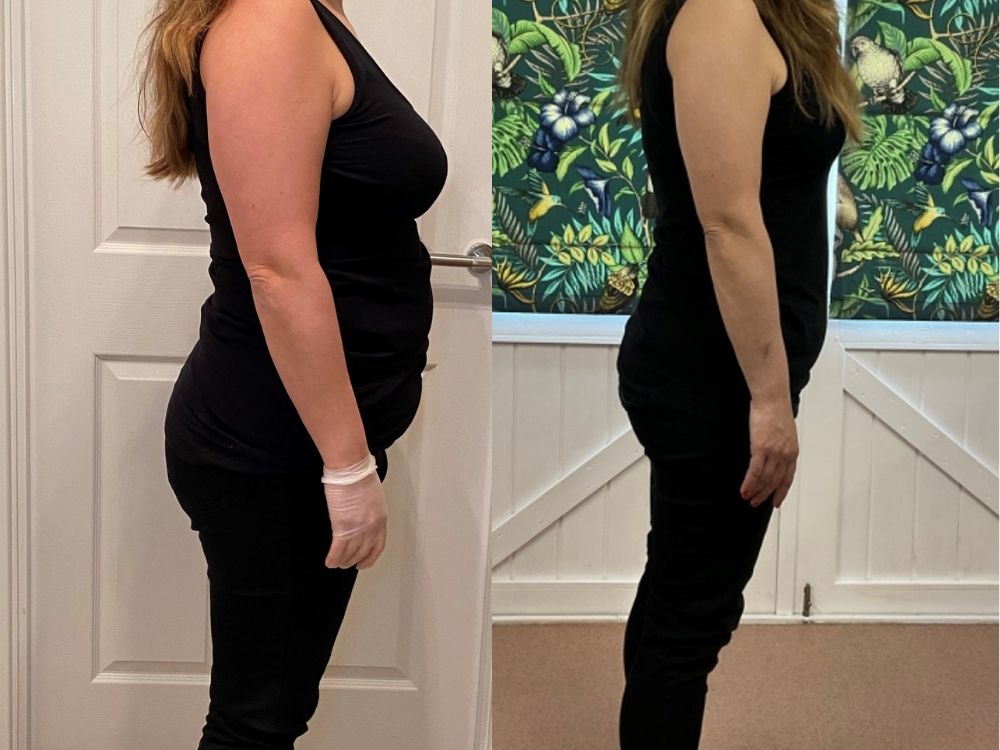
Celebrity news, beauty, fashion advice, and fascinating features, delivered straight to your inbox!
You are now subscribed
Your newsletter sign-up was successful
You may have seen the news this week that a so-called "game-changing" drug will be made available on the NHS in the next few months.
The drug, designed specifically for weight loss, will be prescribed to thousands of adults with obesity who meet a certain set of criteria. Semaglutide, also known as Wegovy, has been approved by a watchdog for public use.
It involves self-administered weekly injections and, when tested, saw patients lose an average of 12% of their body weight in the first year, or so report the National Institute for Health and Care Excellence (Nice).
People suffering from weight-related conditions like obstructive sleep apnoea or heart disease, or with a body mass index (BMI) of at least 35, could be prescribed the drug, and comes as one in four people in the UK classify as obese.
So - what do the experts reckon, and will it work? We spoke to Piroska Cavell, a nurse with a PgDip in obesity and weight management from the University of South Wales who uses the same weight loss drug for her private clients. She's skeptical about it working via NHS prescription - here's why.
"I'm a nurse and I don't think the NHS weight loss "wonder drug" will work - here's why"
While obesity "wonder drugs" semaglutide and liraglutide can "without doubt" be the fat loss kick start someone is looking for, Cavell maintains that to get to a healthy weight, you can't see any medication asa a "magical silver bullet".
Why? She thinks it may actually be a waste of money because the drug only works alongside a healthy eating and exercise plan. Individuals who are deemed eligible for this treatment on the NHS will have already been advised to eat healthier foods and exercise and likely won't have succeeded - so just giving them the drug and not helping them on a weekly basis with a structured eating and exercise plan will render the drug useless.
Celebrity news, beauty, fashion advice, and fascinating features, delivered straight to your inbox!
"It shouldn't be promoted as a wonder drug," she shares. "Rather, these medications should be used with a detailed personal plan and tailor made around the individuals needs."
She believes that weekly support is the key to empowering people to change their habits for good.
"There is no getting away from the fact that to lose weight successfully you have to eat differently and move more - that is a fact," she explains.
However, she maintains that starving people is never going to work either. "Someone who hates salad is not going to start eating it and keep eating it."
She thinks that the focus needs to be far more all-encompassing - combining eating well, moving more, and working on your mental health, too. For Cavell, it's a combination of:
- Gaining muscle, which in turn speeds up your metabolism
- Increasing movement to improve both your cardio health and reduce fat," she shares.
However, often people who are obese find moving difficult, in her experience. "Individuals sometimes feel terribly embarrassed about doing any form of public exercise."
Exercise anxiety can impact anyone, but encouragement to feel confident exercising is also a vital part of any weight loss, the specialist maintains.
"What is needed is help, support and encouragement - alongside any medication - to find ways of moving they can enjoy," she goes on.
Enjoyable or mindful movement could include:
- Walking (read our guide to the best UK hikes, here)
- Dancing
- Climbing
- Jogging
- Tennis
- Squash.
And so on - the possibilities are endless.
The reason Cavell thinks the drug won't work? The NHS and stretched GP’s simply won’t the have time or the funds to support the drug with this level of care. "People need to be educated and understand it is not just about the scales - GP's are not trained in obesity or weight management and neither are pharmacists."
To add here - she understands that weight loss is a complex personal journey, which is why this one particular "wonder drug", for Cavell, is problematic. She's worked with patients who take the drug for years and shares that they are "often very shy, vulnerable and are ashamed of their body."
"We built in exercise she enjoyed, addressed her sleep habits, and made time for her to de-stress."

Take Noella*, for example - a client who Cavell helped to lose nearly 10kg. She maintains that this is an example of how sustainable weight loss can - and should - be done.
"She was very low in mood and self-esteem when they first saw me. She cried a lot. It was heartbreaking. She was a businesswoman, busy mother and wife. At 43 years old and having experienced early menopause brought on by a hysterectomy, she was at a loss as to how to regain control over her weight."
"We started with the in-depth consultation and questionnaire. Weekly reviews followed over the course of 12 weeks where I tweaked her personal plan according to her progress, changes to her diet, and mood. As her confidence grew, we reviewed her plan in relation to starting exercise."
"With many patients who want to lose weight, they are not ready to exercise at all - let alone in public - as their self-confidence and self-perception is so low, they are too self-conscious to put on any workout clothes or venture out."
"Gradually around week three, this patient felt good enough to start the couch to 5K. Running was something she used to do and she was keen to get back to. Over the next three weeks, she he was enjoying the exercise, so added in some yoga, too."
"To make sure it was a holistic approach to weight loss, we built in exercise that she enjoyed, addressed her sleep habits and time for herself to de-stress. Gradually she learnt new eating habits and an understanding of the psychology of why she was eating the way she was."
"It's always important to explore patients negative self-talk and where it comes from - it's a learned behaviour, after all, so unravelling it and rebuilding positive encouraging self-talk is a big part of successful weight management. All of this combined with the daily Saxenda injection - which reduces appetite, slows gut motility, and acts on receptors in the brain - helped her hear her bodies signals telling her when she was full, lose fat, build muscle and her confidence. No starving, no ultra-low-calorie diet, and no "bad" foods."
"Patients are educated on the plan and given the tools to manage their weight in the future. It is also important for them to understand that they may well gain weight, because weight fluctuates but, that they have the tools to manage it, rather than disappear in despair, eat their feelings and hide away."
"Ultimately, the most important outcome from this plan is that patients discover the silver bullet to weight management is their mind."
"At the end of twelve weeks, this patient was a different woman physically and emotionally and was back in control and confident in managing her food and exercise. At our last review, this wonderful woman had entered her 10k race and was literally shimmering and full of life."
She lost 9.3 kg.
Before: 79.4kg Body fat 42% Visceral Fat 9% Muscle 25.9% Chest 41inches Waist 35 inches Hips 42 inches.
After: 70.1kg Body Fat 32% Visceral Fat 7% Muscle 31.1% Chest 38.5 inches, Waist 30 inches Hips 39.5inches.

Ally is Marie Claire UK's Senior Health and Sustainability Editor, a well-regarded wellness expert, ten-time marathoner, and Boston Qualifying runner.
Utilising her impressive skillset and exceptional quality of writing, she pens investigative, review and first-person pieces that consistently demonstrate flair and originality.
As well as writing, Ally manages a team of freelancers, oversees all commissioning and strategy for her pillars, and spearheads the brand's annual Women in Sport covers, interviewing and shooting the likes of Mary Earps, Millie Bright, and Ilona Maher. Shortlisted for three BSMEs and winning one in 2022, Ally lives and breathes her verticals: her eye for a story and connections within the wellness sphere are unrivalled. Follow Ally on Instagram for more.
